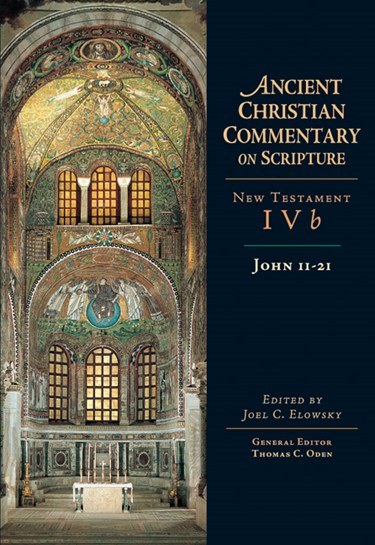

Most ebook files are in PDF format, so you can easily read them using various software such as Foxit Reader or directly on the Google Chrome browser.
Some ebook files are released by publishers in other formats such as .awz, .mobi, .epub, .fb2, etc. You may need to install specific software to read these formats on mobile/PC, such as Calibre.
Please read the tutorial at this link: https://ebookbell.com/faq
We offer FREE conversion to the popular formats you request; however, this may take some time. Therefore, right after payment, please email us, and we will try to provide the service as quickly as possible.
For some exceptional file formats or broken links (if any), please refrain from opening any disputes. Instead, email us first, and we will try to assist within a maximum of 6 hours.
EbookBell Team

4.8
84 reviewsThe Gospel of John was beloved by the early church, much as it is
today, for its spiritual insight and clear declaration of Jesus'
divinity. Clement of Alexandria indeed declared it the "spiritual
Gospel." Early disputers with heretics such as Cerinthus and the
Ebionites drew upon the Gospel of John to refute their heretical notions
and uphold the full deity of Christ. This Gospel more than any other
was central to the trinitarian and christological debates of the fourth
and fifth centuries.
At the same time, the Gospel of John was also
thought to be the most chronological, and even to this day is the
source of our sense of Jesus' having a three-year ministry. And John
Chrysostom's Homilies on John,, perhaps more than any other commentary, emphasizes Christ's humanity and condescension toward the human race.
In
addition to the serial homilies of John Chrysostom, readers of this
volume of the Ancient Christian Commentary on Scripture (ACCS) will find
selections from those of Origen, Theodore of Mopsuestia, Cyril of
Alexandria and Augustine. These commentaries are supplemented with
homiletic material from Gregory the Great, Peter Chrysologus, Caesarius,
Amphilochius, Basil the Great and Basil of Seleucia among others.
Liturgical selections derive from Ephraim the Syrian, Ambrose and
Romanos the Melodist, which are further supplemented with doctrinal
material from Athanasius, the Cappodocians, Hilary and Ambrose.
This
rich tradition, some of which is here translated for the first time,
offers a vast treasure out of which today's scribes trained for the
kingdom may bring forth that which is new and what is old. Edited by
Joel C. Elowsky.